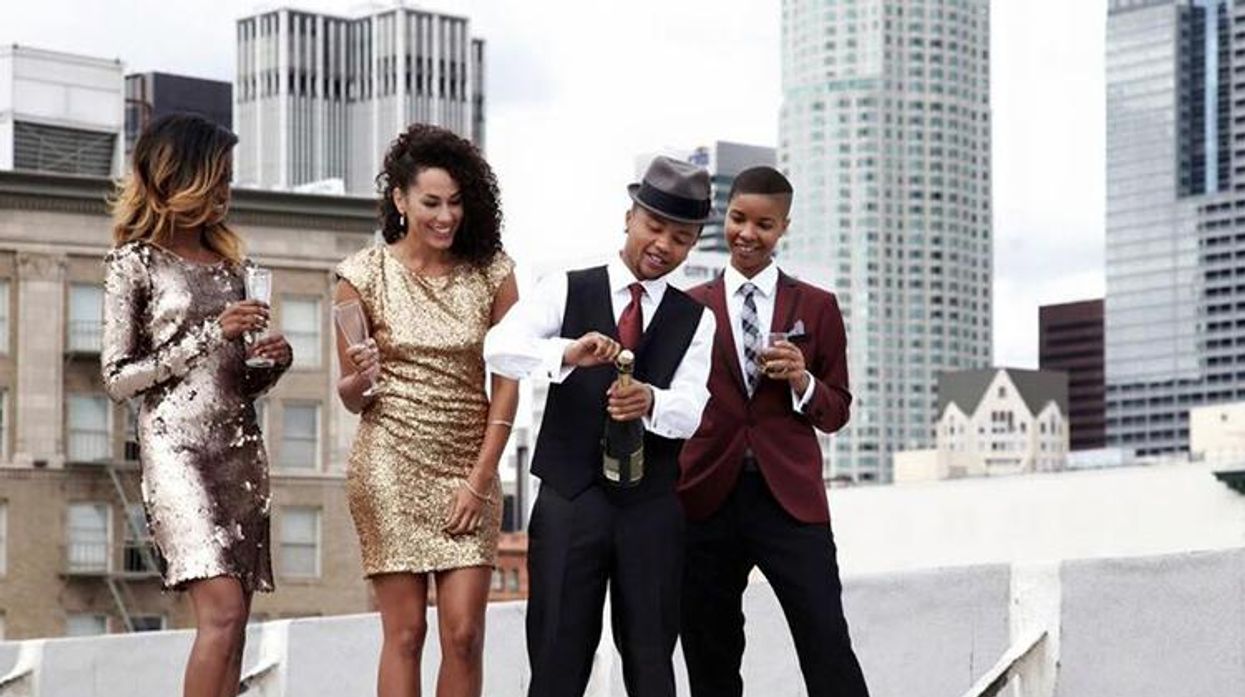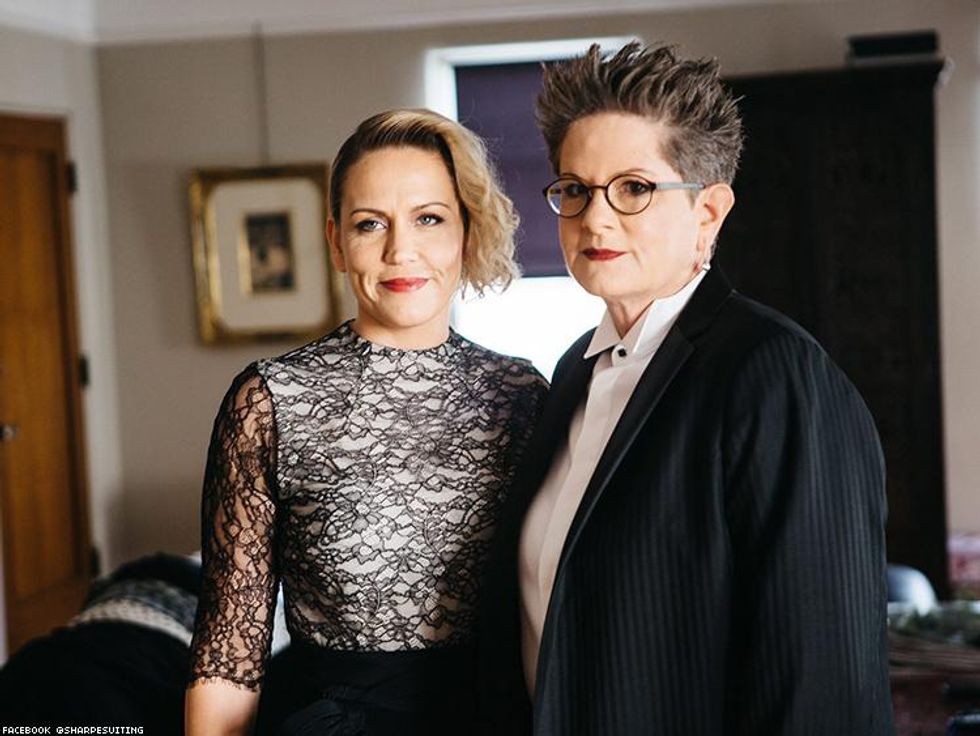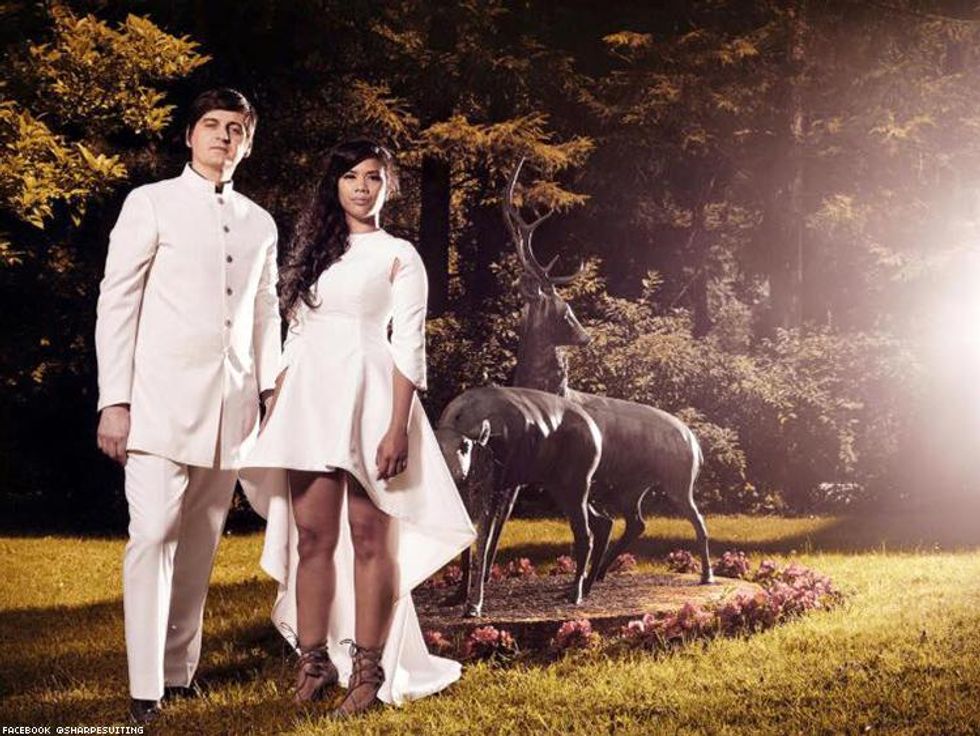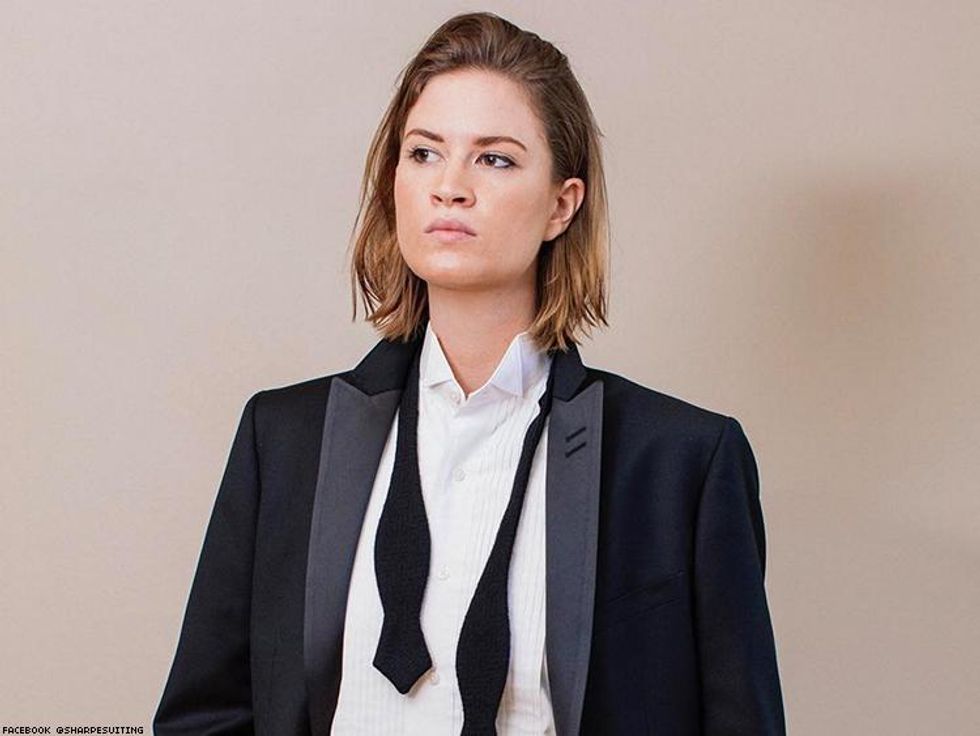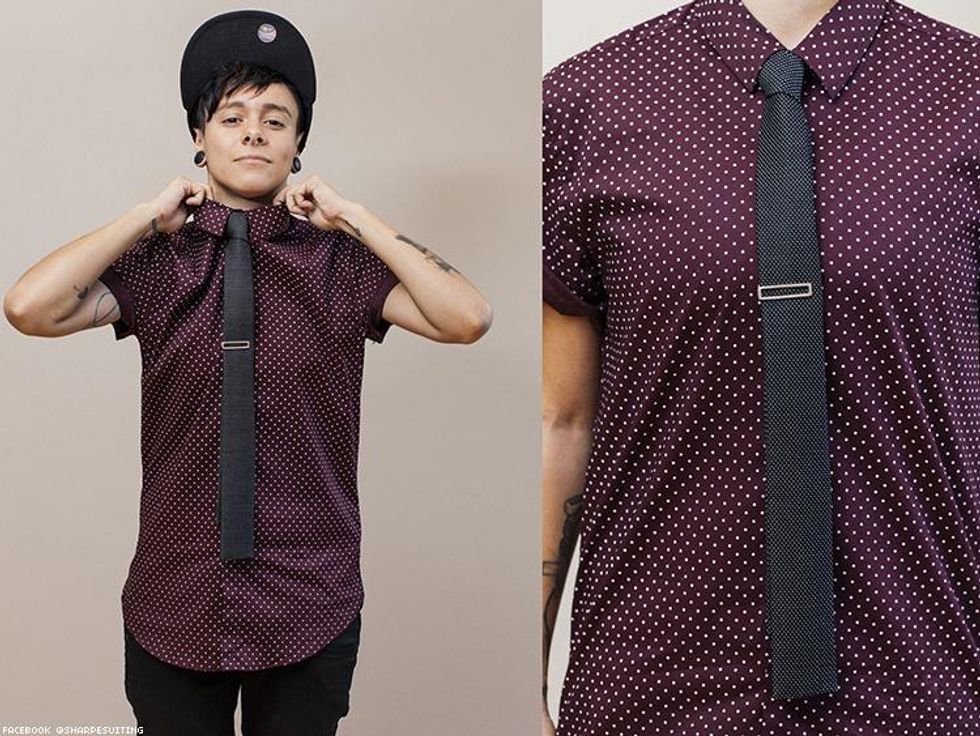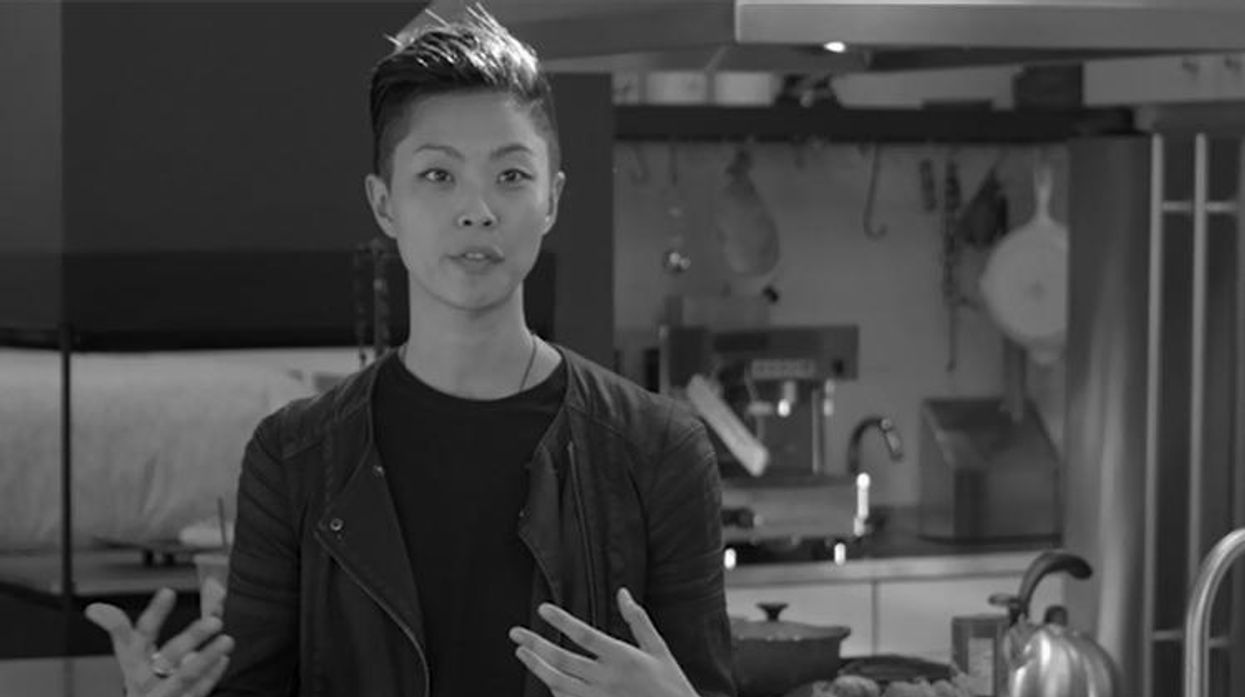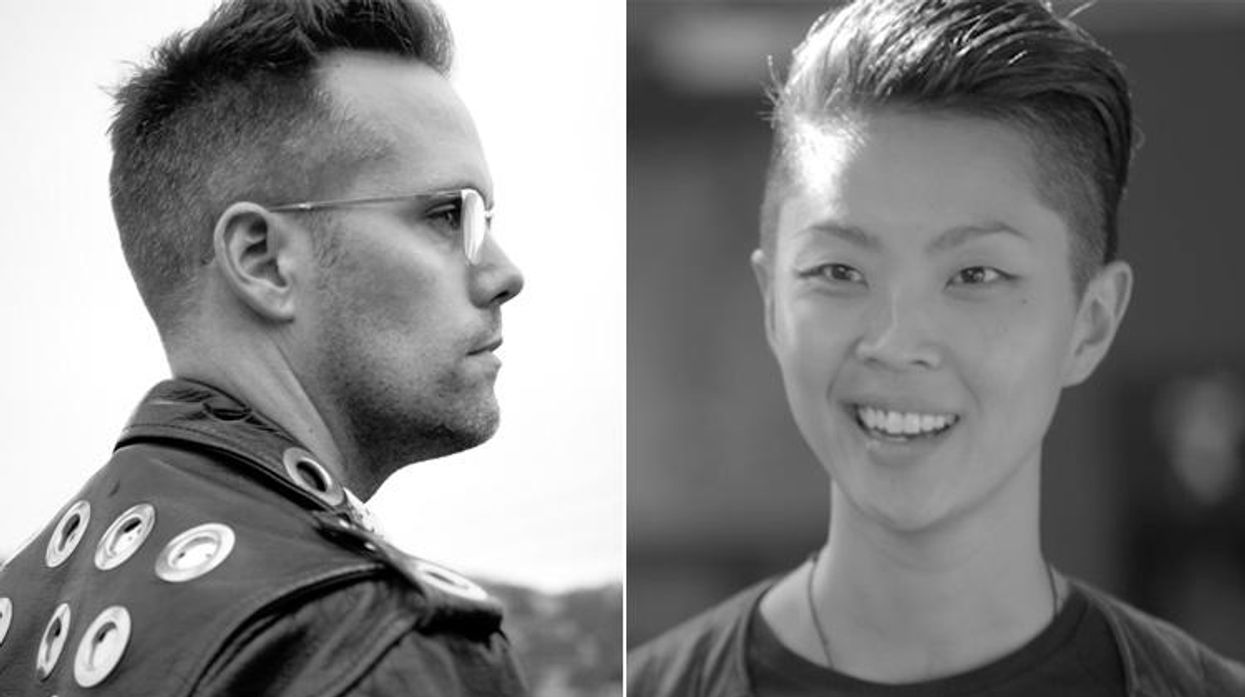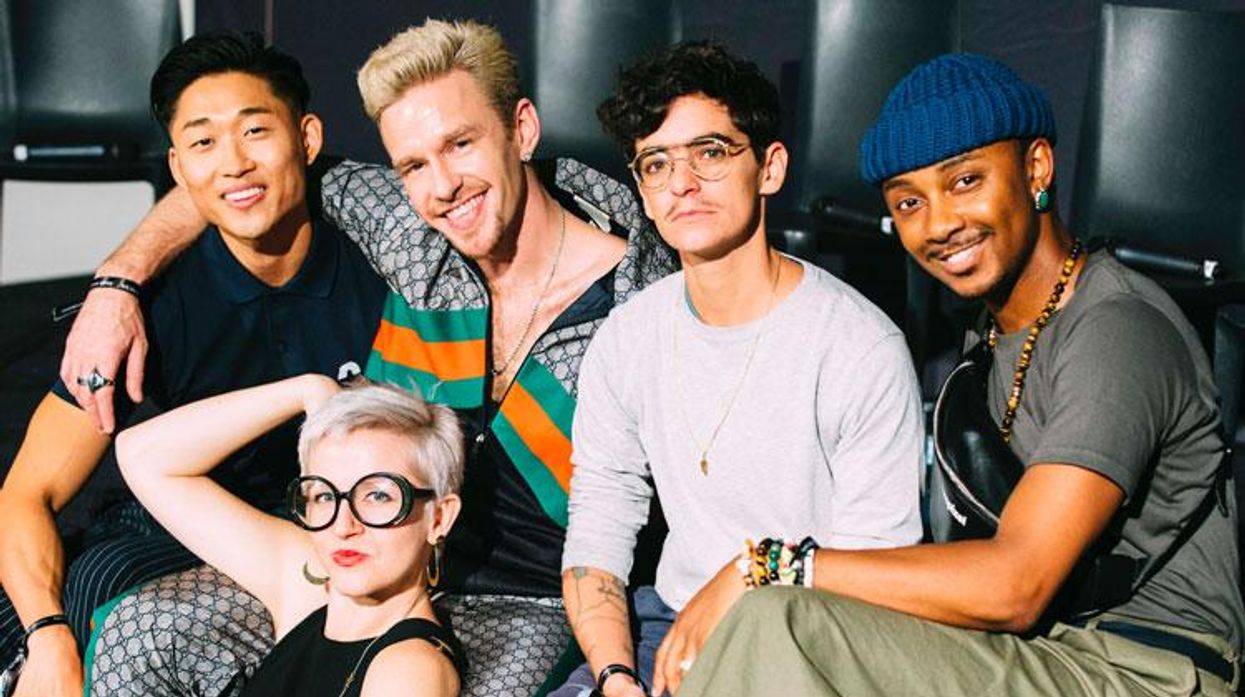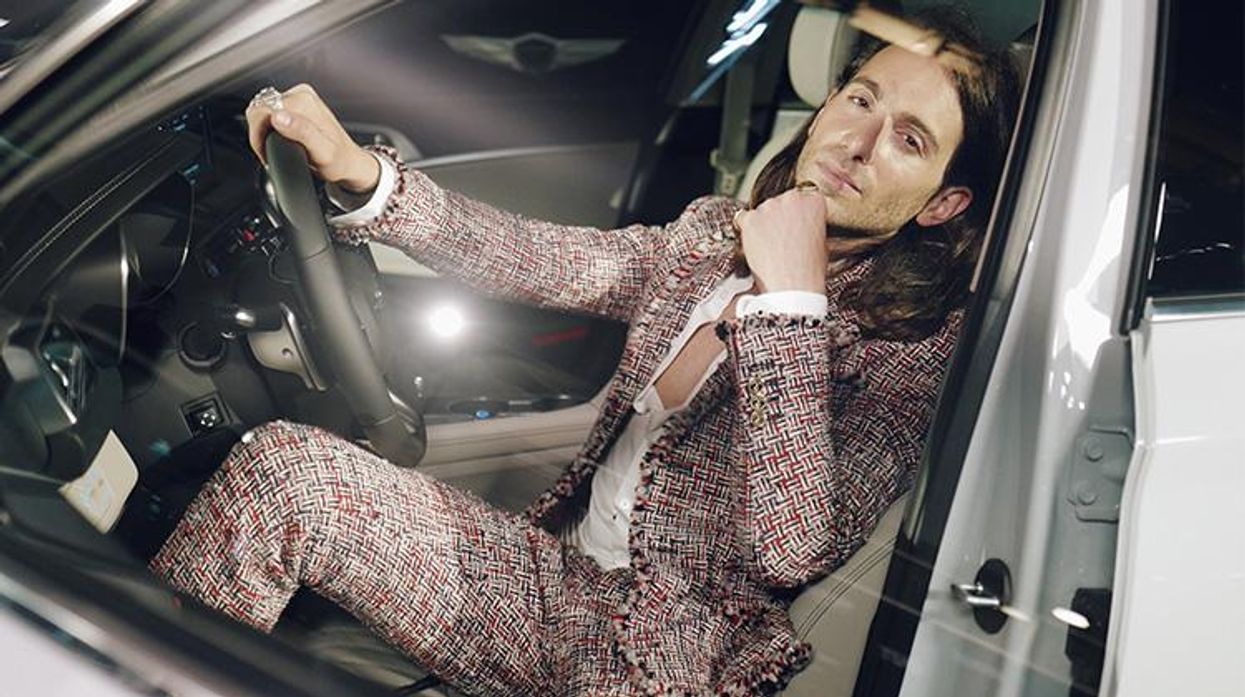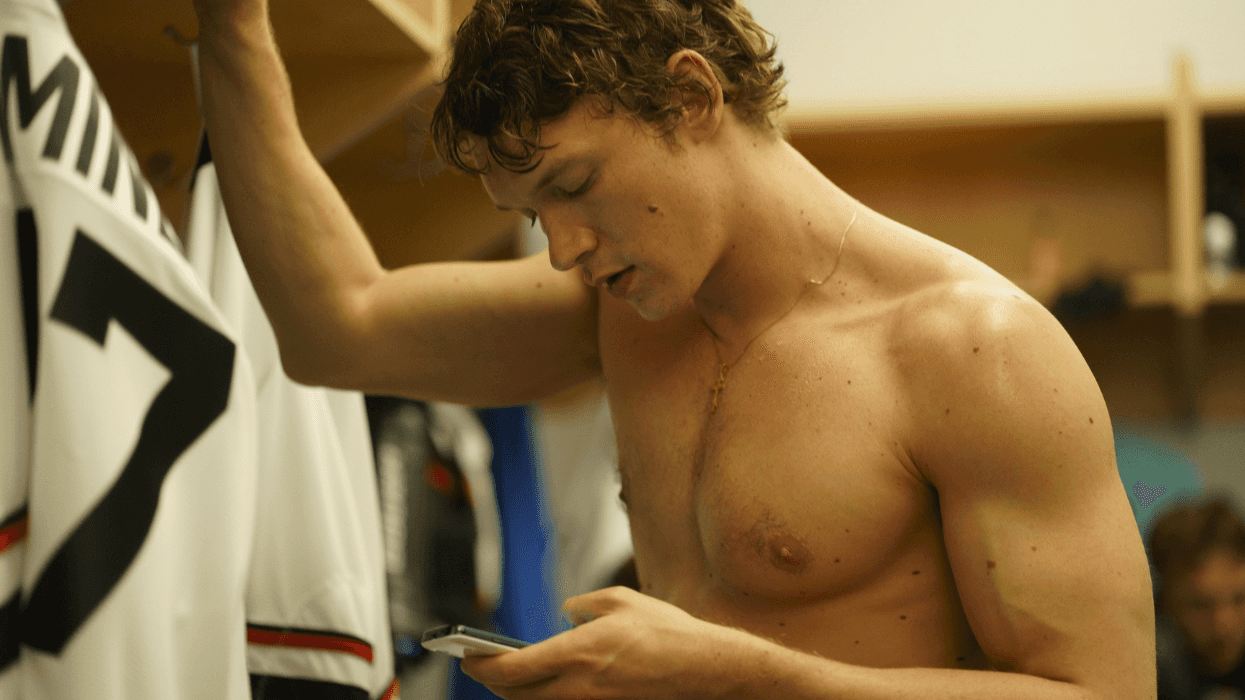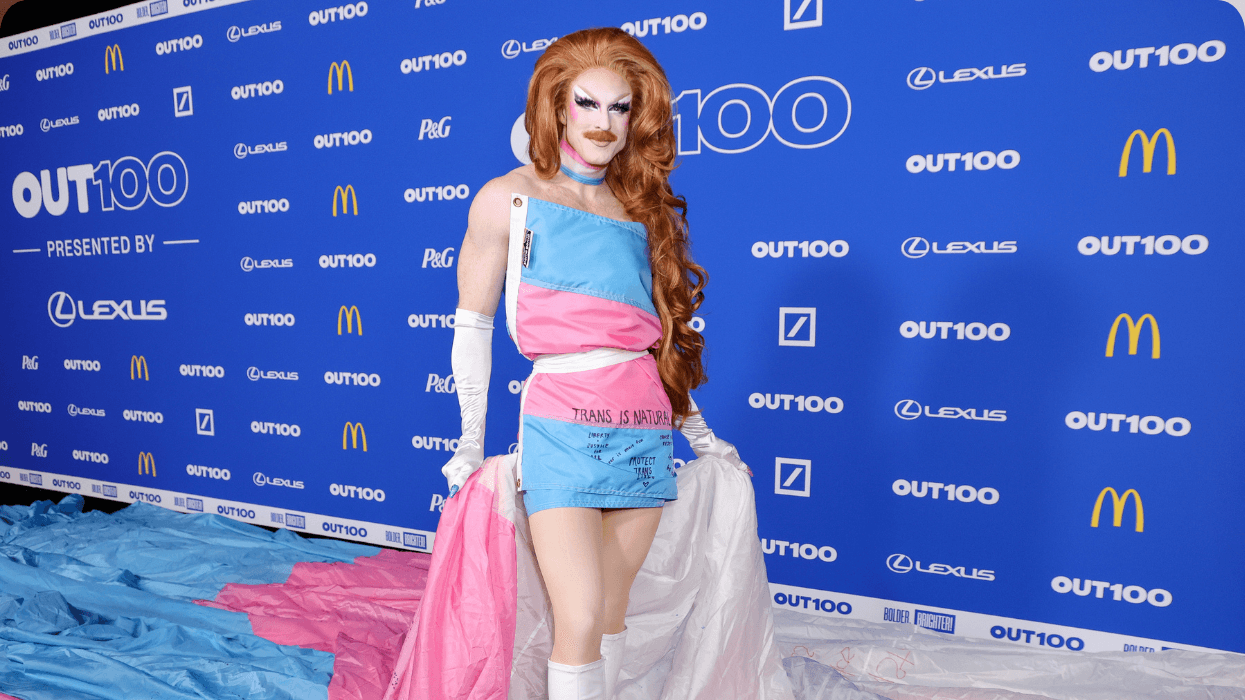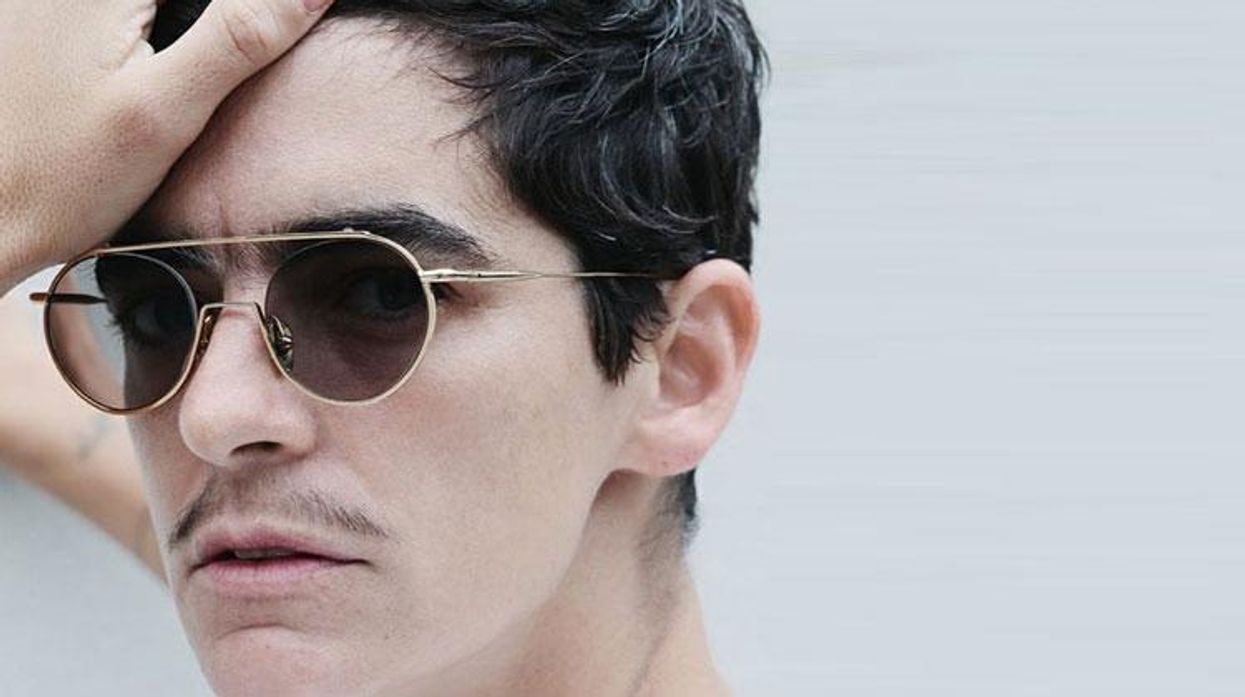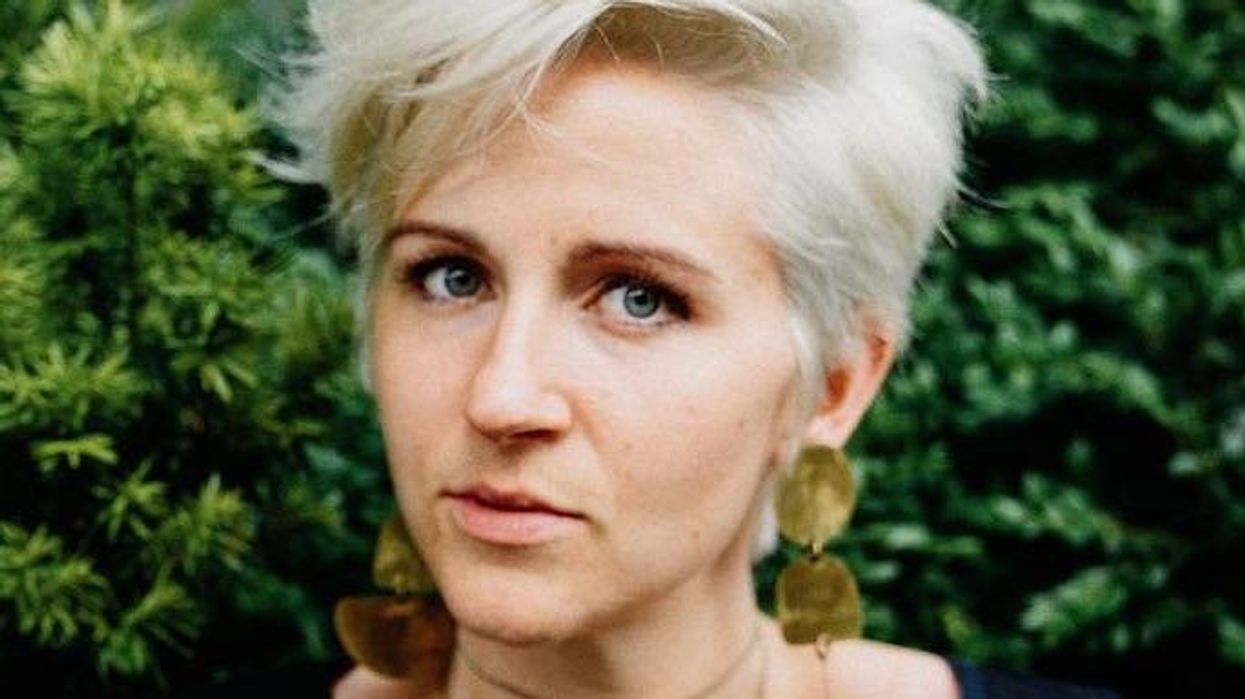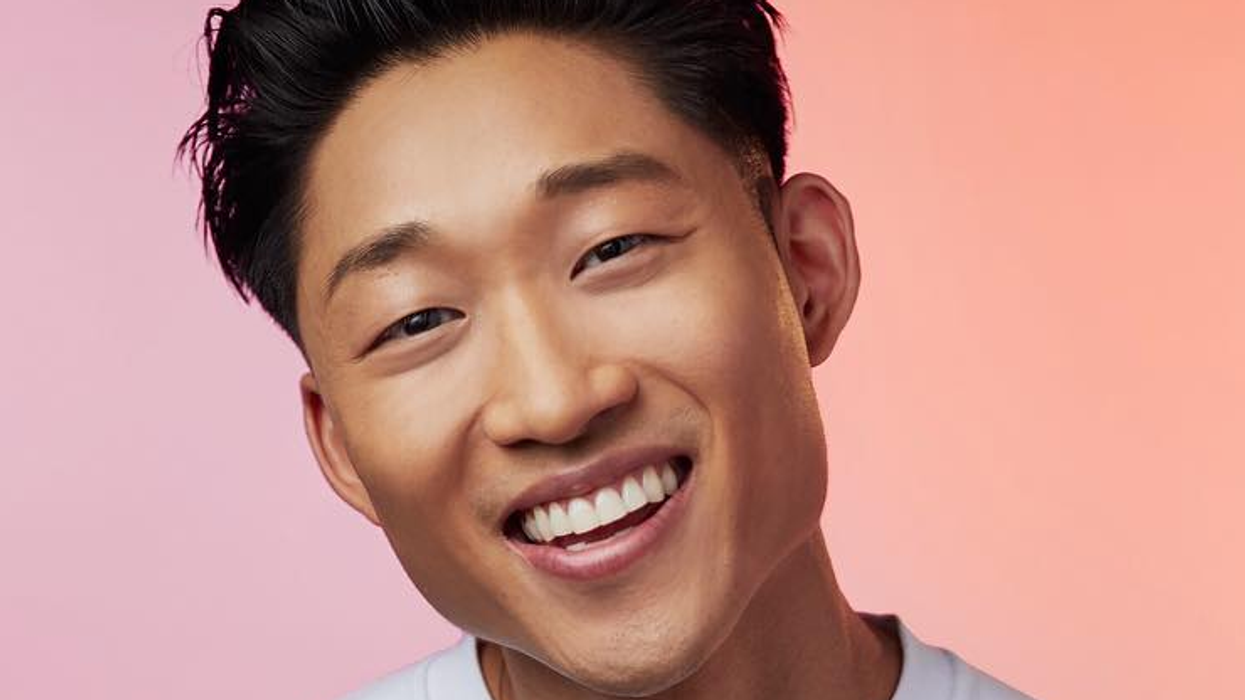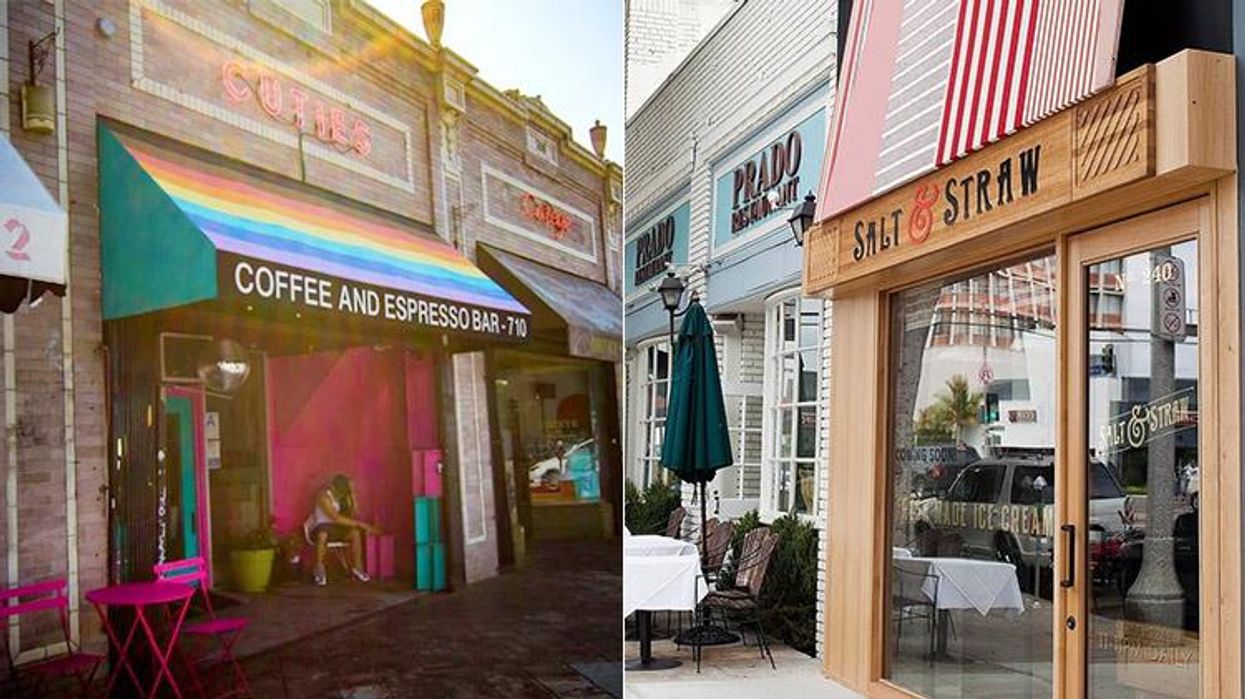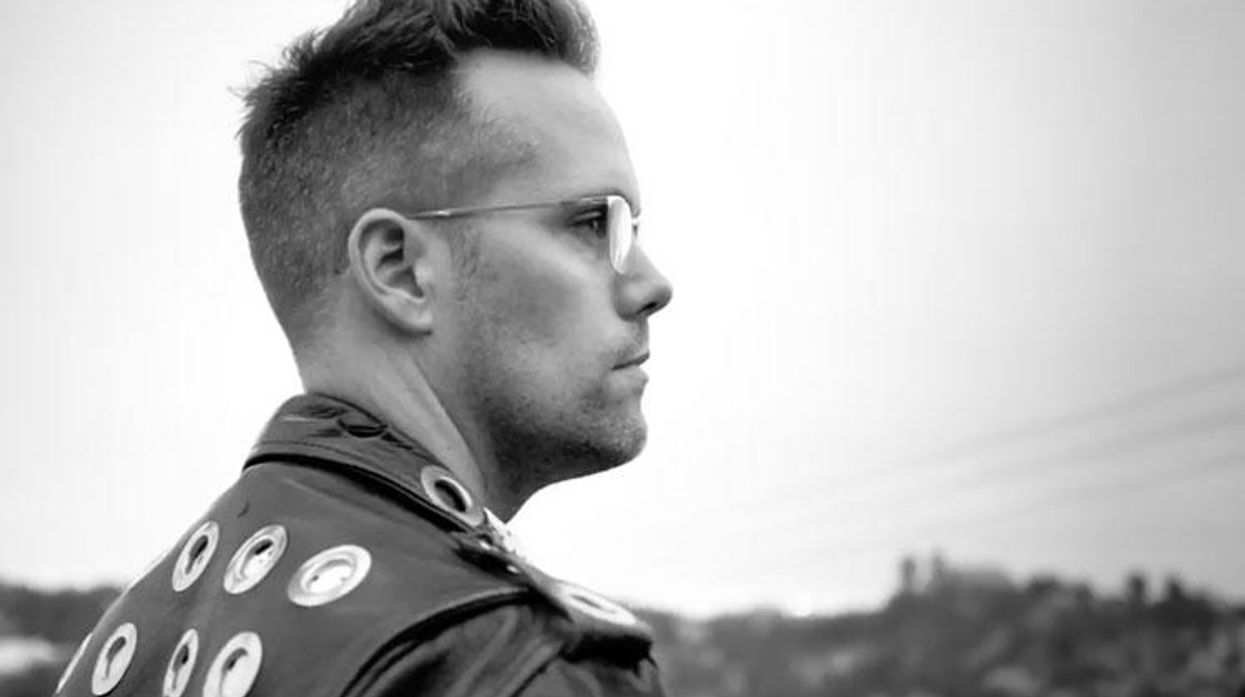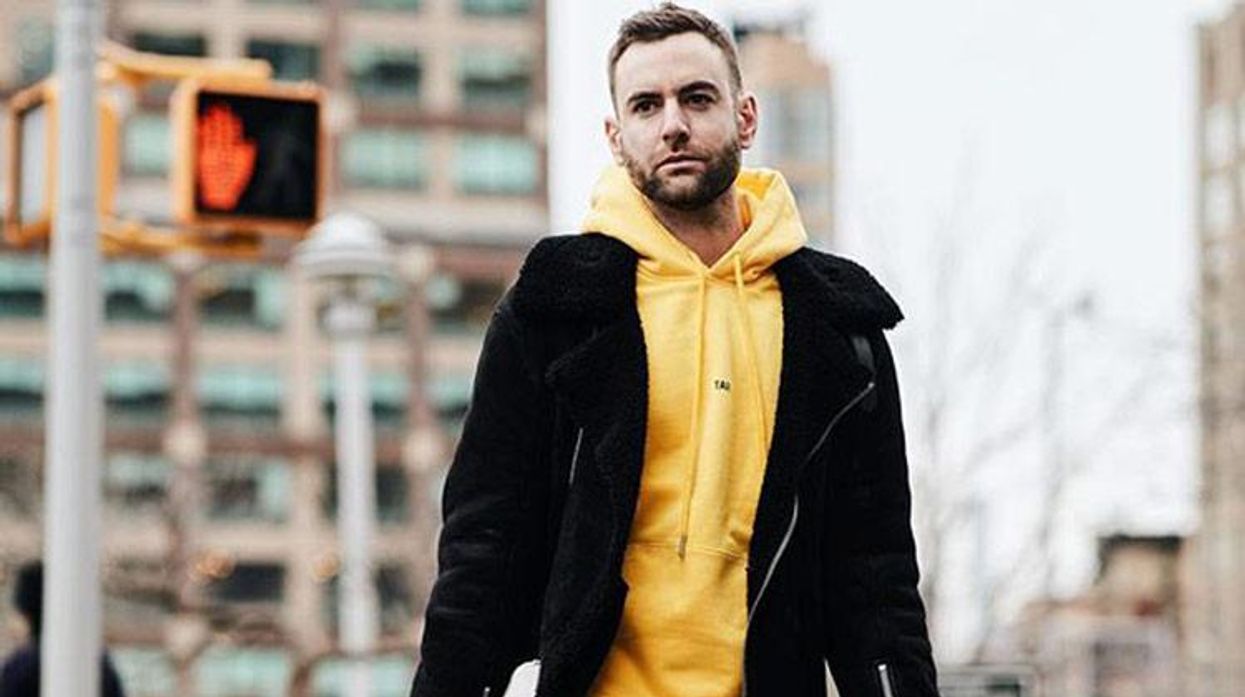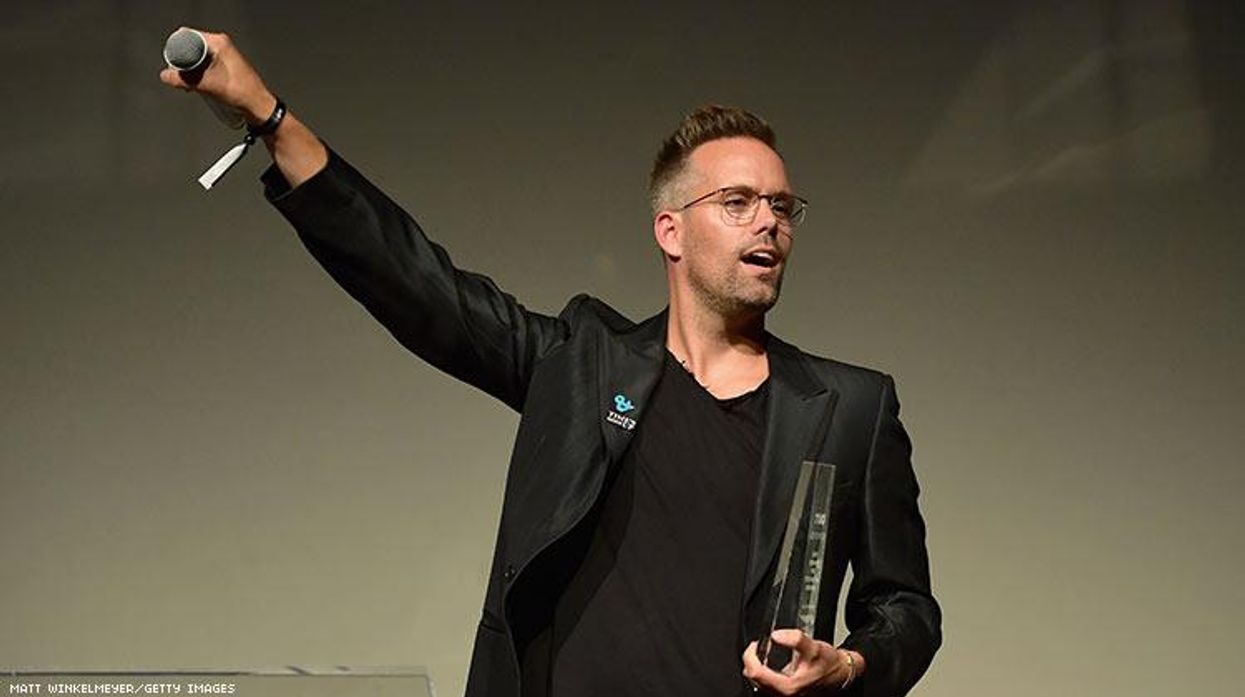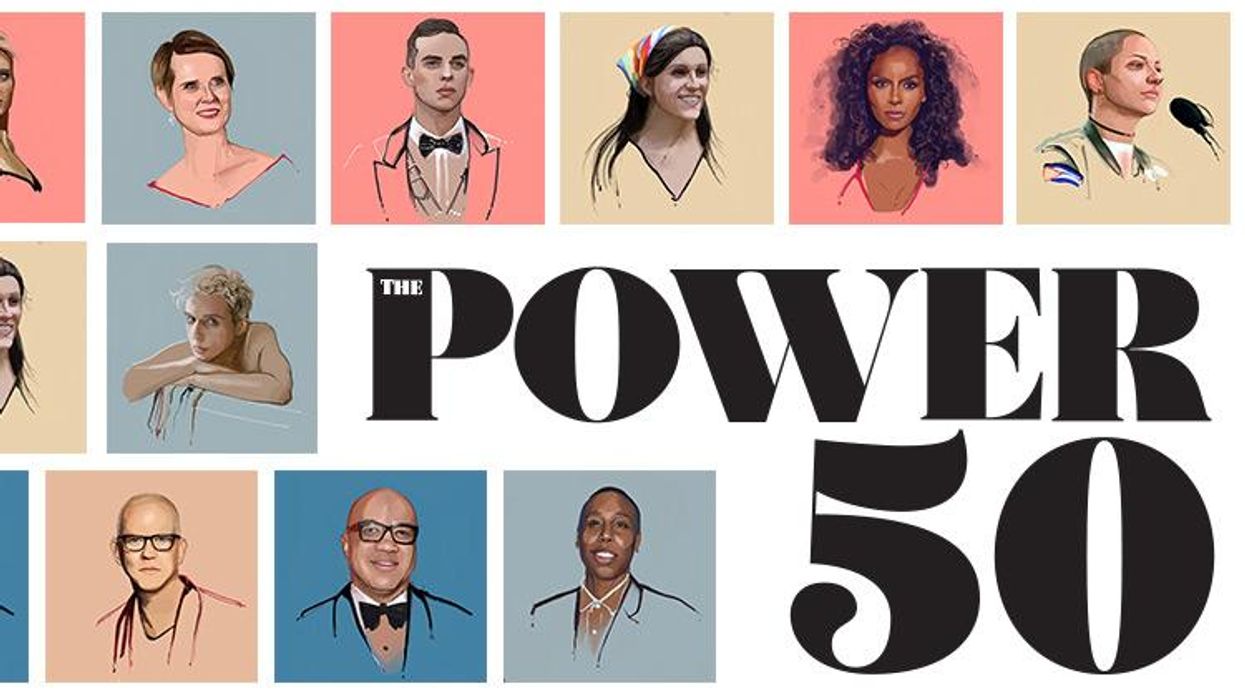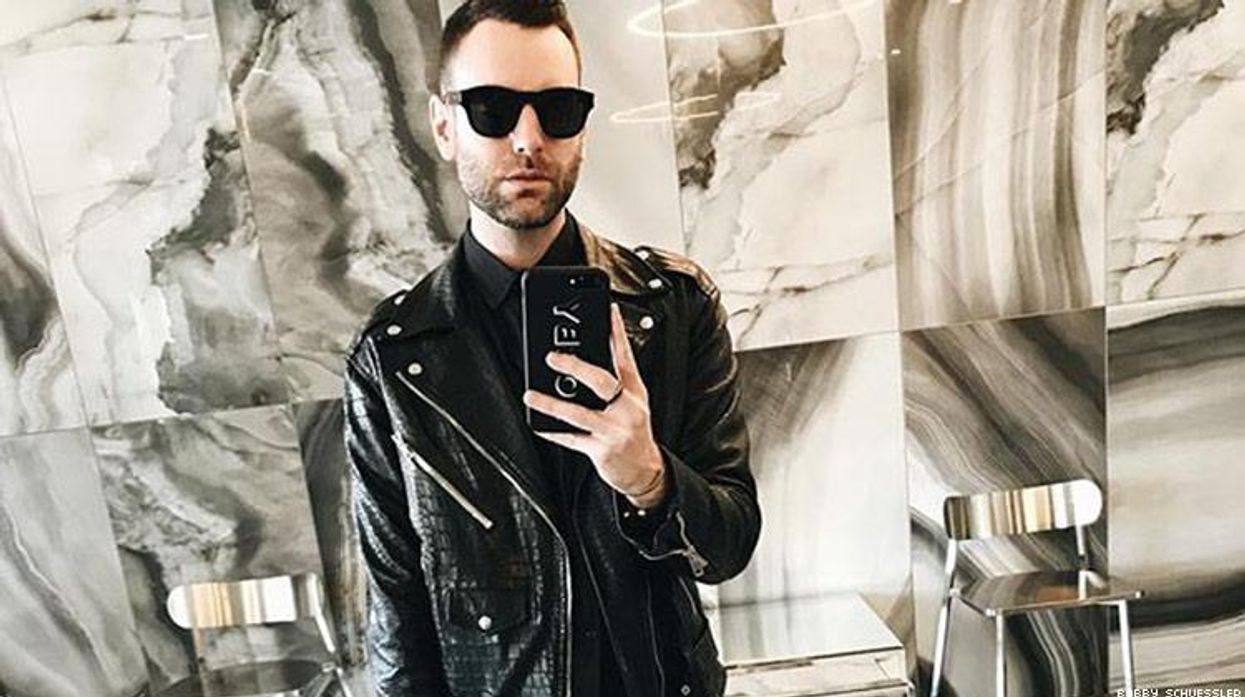Clothes may be an outward form of expression, but they are often intimately connected to individuals' identities. Clothing can represent geography, religion, cultural tastes, gender expression and so much more. Because of the intimate nature of dress and outward presentation, queer people are often left to their own devices when it comes to selecting clothes that not only accurately represent who they are, but also fit their bodies.
Nearly every clothing retailer draws a distinct line between the gender binary -- "men" and "women." Walk into any physical retail location (or browse any clothing website, for that matter) and customers are immediately faced with a choice, forcing them to head toward one side of the binary or the other: "men" or "women." But what about the growing number of customers who aren't so easily categorized? What if one's gender doesn't align with traditional, heteronormative notions of clothing styles?
It's because of these very questions that queer designer Leon Wu decided to start Sharpe. "Sharpe came out of the need to suit myself and my masculine-identified friends in a side business operation to my previous career," Wu said during a "day in the life" interview with Autostraddle. "I dived into Sharpe 100 percent after a year of business, due to the enormous demand."
Now, Sharpe has branched out from just suits to include dresses, as well. But the clothier is more than just a queer-inclusive vanguard -- it's joining a growing portfolio of "bespoke" boutique businesses, a model becoming more and more popular with retailers. From hand-selected recipe boxes to unique accessory services, custom vehicle choices to personalized wine delivery, the desire to purchase custom over mass-market is at an all-time high. And for an audience who may still feel apprehension walking into a traditional clothing retailer, Sharpe offers an alternative complete with peace of mind and quality.
In an interview with Huffington Post, Wu summarized Sharpe's mission statement simply: "Everyone deserves to choose for themselves what expresses who they are. Everyone deserves to be seen."
When discussing Sharpe's inspiration, Wu recalled early life memories:
"Fashion is identity, so the journey really began with understanding myself and how I fit into the world. At an early age, I desired to wear menswear and idolized the clothes my father wore. I would sneak into his closet and try on his clothes when my parents weren't home. When I finally physically matured into an adult, I was disappointed that I still didn't fit into his suits, my brother's, or anything else available off-the-rack in the men's section."
The seed of inspiration was born. But it took more than queer-inclusive language and gender-non-conforming styles. It required a whole new way of looking at body measurements. Using a revolutionary, gender-neutral measuring system dubbed "Andropometrics," Sharpe is able to tailor clothes that fit customers' body types and gender identities. As explained on it's website:
"For hundreds of years, tailors around the world have used Anthropometrics, the study of human measurement, to design clothing for men and women, clearly delineating the two. At Sharpe, we developed Andropometrics -- our patented way of measuring the body to create a more masculine or feminine silhouette, reflecting your style and identity. Based directly on real measurements from our many clients, we know how to suit you."
The process is a perfect example of a customizable customer experience. Once customers' measurements are collected, the design process begins. Whether it's a suit or a dress, customers are involved every step of the way.
First, style selection. From double-breasted jackets to scoop-collared dresses, designers work one-on-one with customers to find the perfect style. What follows includes fabric selection (Cotton? Silk? Patterns? Solids?), detailing choices (Button holes? Monograms?) and fittings. This consultative process is popular with customers, who have helped Sharpe grow to the in-person and online retailer it is today.
While clothing customers in quality attire is Sharpe's main purpose, its impact is more far-reaching than that. When talking with Huffington Post, Wu explained:
"Bridging the gap between menswear and womenswear is going to have a large social impact in that it defines the acceptance of queer identities, as well as advancing gender equality in the larger straight community ... At Sharpe Suiting, we don't judge clothing by an individual's gender. We will make you custom dresswear (suit, dress, etc.) for whoever wants it."
As queer identities continue to vie for visibility and inclusion, businesses like Sharpe are primed to lead the charge, offering products and services that are truly needed and deeply appreciated.



